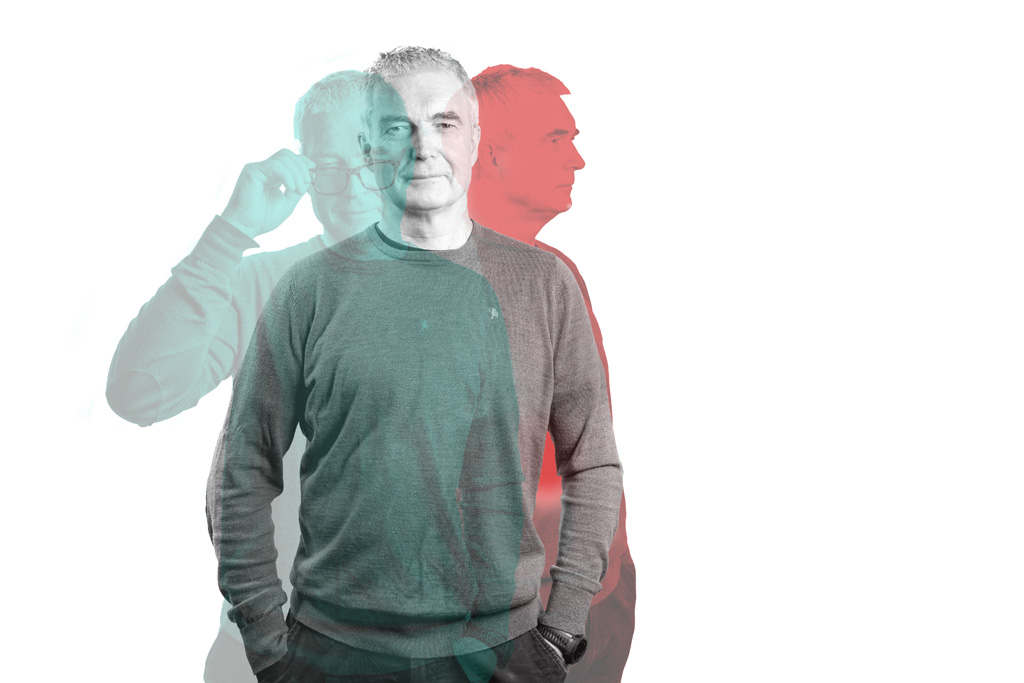AI requires a holistic perspective
Havtil monitors the companies' work on artificial intelligence (AI) closely – and ensures that risk factors are seen and managed.

- Artificial intelligence

In the petroleum industry, many projects and initiatives are currently underway to develop and implement artificial intelligence into various systems. Havtil employs extensive resources on obtaining an overview and helping companies to see AI in a holistic perspective, where also risks are highlighted and managed.
"Havtil has followed up on artificial intelligence for the industry over time," says Torleif Husebø, head of process integrity with a key role in Havtil's AI work.
The follow-up, which has taken place through frequent meetings with operating companies, shipowners, drilling contractors and system suppliers, is progressing at full speed. Havtil also directly supervises implementation.
Husebø points out that it is important to distinguish between different systems and the degree of impact they have on safety.
A serious accident or incident is rarely due to the failing of one specific thing.
Direct and indirect
“We operate within two categories. The first consists of systems that have an indirect impact on safety, often decision support systems. The second category consists of systems which are directly connected to safety, such as emergency shutdown systems or fire/gas systems which feed directly into safety-critical applications," Husebø explains.
He states that the use of AI within systems in the first category is currently most commonly seen in the industry. At the same time, work is underway on technology which falls into category two.
"We see, for example, that systems are being developed within drilling - to optimize the drilling processes. There is only a small step between this and what we refer to as safety-critical impact," says Husebø.
Technology neutral
The regulations for the petroleum industry are so-called technology neutral. They consist mainly of functional requirements, which determine what level of safety must be achieved, but not how this should be done. Separate guidelines for the regulations show how the provisions can be achieved. They often refer to established standards. This means that constant updates to the regulations in the face of new technology should not be necessary.
"Our assessment is that the regulations hold up well when applied to AI, but that there is still work to be done on the standardisation side. We see the same in general when it comes to the introduction of new technology. But good work is being done on AI-relevant standards both nationally and internationally," Husebø points out.
Interdisciplinarity
He emphasizes the importance of so-called domain competence or interdisciplinarity.
“AI encompasses many disciplines. Therefore, it is very important to think interdisciplinarily. For example, if you are going to implement AI in drilling systems, it is not sufficient just to use AI experts.
AI implementation places great demands on people, the organization and technology. Therefore, it is important to focus on the connections.
A serious accident or incident is rarely due to the failing of one specific thing.
It is more often than not a combination of several factors," says Husebø, and highlights certain points that are particularly important in the development, implementation and use of AI in the petroleum industry:
Risk management:
Have good initial processes, and make sure to identify and assess relevant threats and hazards. New technology will always involve new circumstances which must be taken into account.
Competence:
Involve relevant disciplines; a cross-section is needed. Good domain competence is essential.
Technology Qualification:
This is especially important when it comes to AI, which looks likely to be used extensively, with possible deep implementations. Thorough processes are also important to achieve sufficient maturation of the technology.
Standards:
The industry must contribute to the work on standardisation - as we have seen, for example, with Norsok, which has contributed significantly to security levels. On the topic of AI, it is important that we all pull our weight. The goal must be to implement AI-based solutions in order to improve security.
Responsible use
Havtil has had a knowledge overview prepared which covers the basic risk factors associated with the development and use of artificial intelligence (AI) in the petroleum industry, particularly with regard to major accident risk.
The report "Responsible use of artificial intelligence in the petroleum sector" explores how AI can improve both efficiency and safety, whilst taking into account the unique risks AI presents compared to traditional IT and automation systems.
Responsible use of artificial intelligence